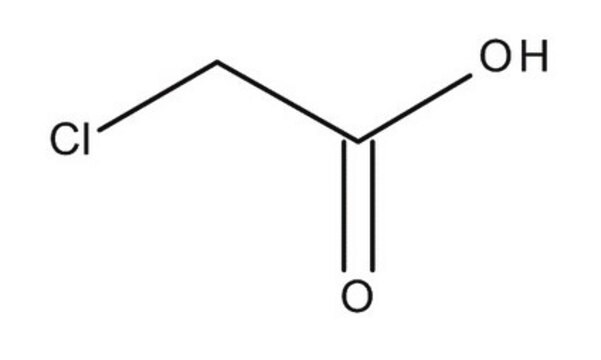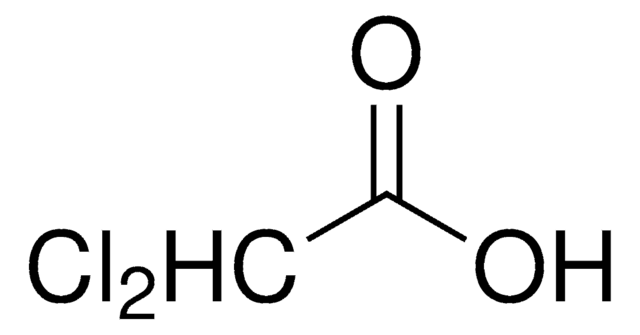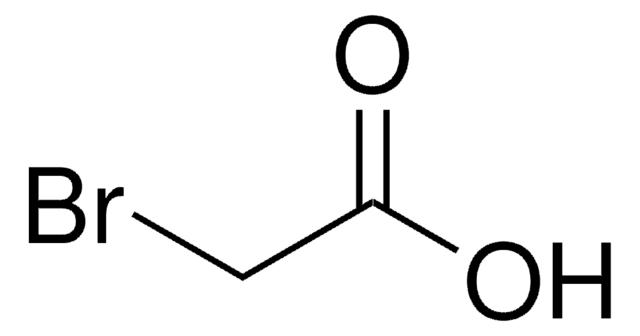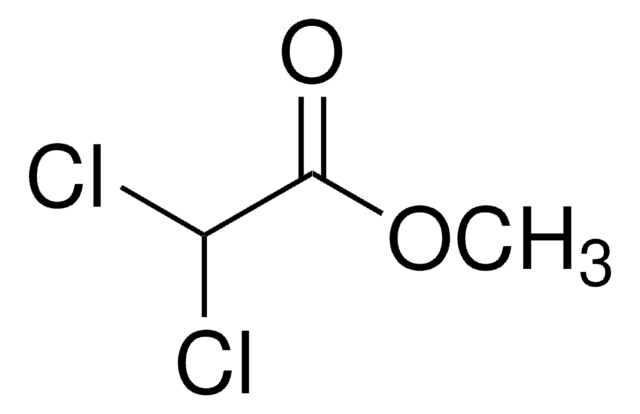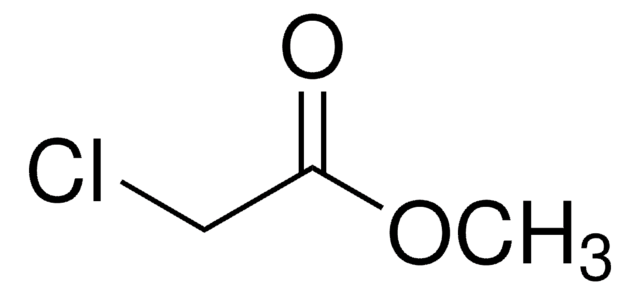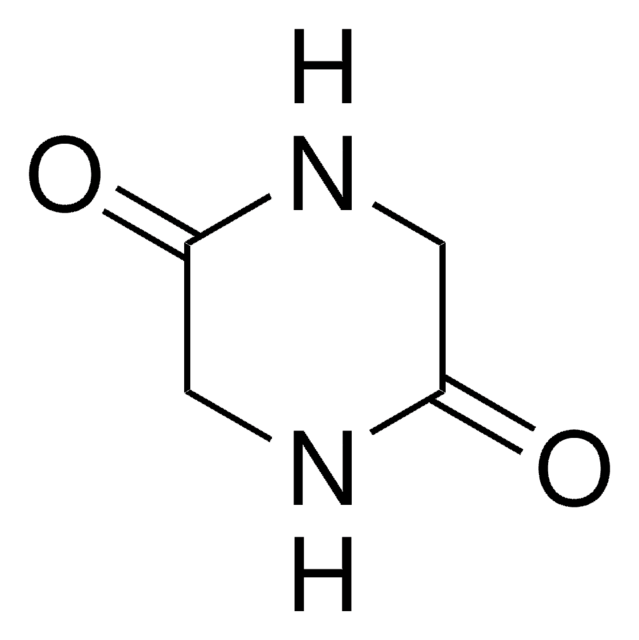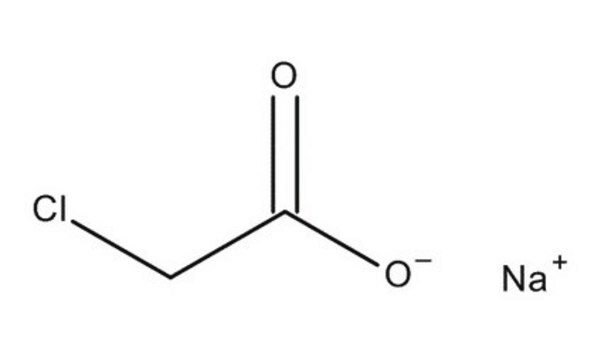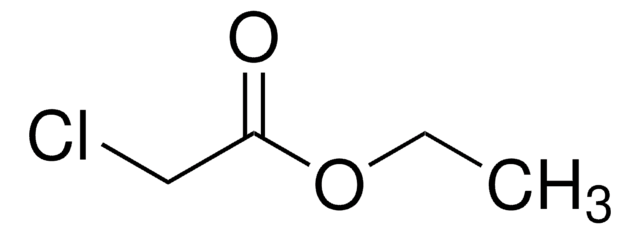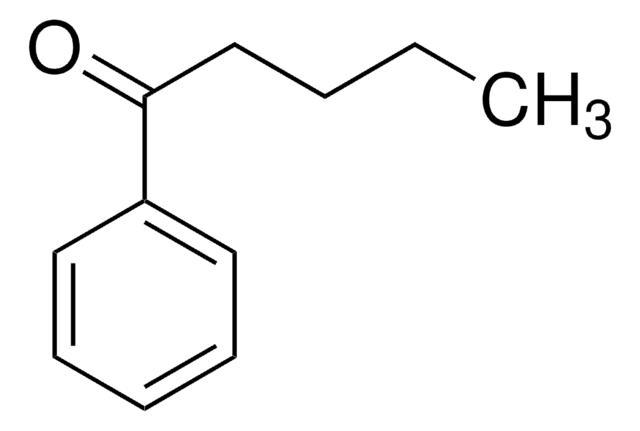C19627
Chloroacetic acid
99%
Synonym(s):
Monochloroacetic acid
About This Item
Recommended Products
vapor density
3.26 (vs air)
Quality Level
vapor pressure
0.75 mmHg ( 20 °C)
Assay
99%
form
crystals
bp
189 °C (lit.)
mp
60-63 °C (lit.)
solubility
water: soluble 3,170 g/L at 10 °C
functional group
carboxylic acid
chloro
SMILES string
OC(=O)CCl
InChI
1S/C2H3ClO2/c3-1-2(4)5/h1H2,(H,4,5)
InChI key
FOCAUTSVDIKZOP-UHFFFAOYSA-N
Looking for similar products? Visit Product Comparison Guide
General description
Application
- Thiocarbamoylthioacetic acid derivatives.
- 4-Thiazolone derivatives.
- Triazinothiazolone derivatives.
- Water soluble carboxymethyl chitosan.
Disclaimer
Signal Word
Danger
Hazard Statements
Precautionary Statements
Hazard Classifications
Acute Tox. 3 Dermal - Acute Tox. 3 Inhalation - Acute Tox. 3 Oral - Aquatic Acute 1 - Eye Dam. 1 - Skin Corr. 1B - STOT SE 3
Target Organs
Respiratory system
Storage Class Code
6.1A - Combustible acute toxic Cat. 1 and 2 / very toxic hazardous materials
WGK
WGK 3
Flash Point(F)
258.8 °F - closed cup
Flash Point(C)
126 °C - closed cup
Personal Protective Equipment
Regulatory Listings
Regulatory Listings are mainly provided for chemical products. Only limited information can be provided here for non-chemical products. No entry means none of the components are listed. It is the user’s obligation to ensure the safe and legal use of the product.
PRTR
Class I Designated Chemical Substances
ISHL Indicated Name
Substances Subject to be Indicated Names
ISHL Notified Names
Substances Subject to be Notified Names
JAN Code
C19627-1KG:4548173190754
C19627-BULK:
C19627-VAR:
C19627-25G:4548173190761
Choose from one of the most recent versions:
Already Own This Product?
Find documentation for the products that you have recently purchased in the Document Library.
Customers Also Viewed
Our team of scientists has experience in all areas of research including Life Science, Material Science, Chemical Synthesis, Chromatography, Analytical and many others.
Contact Technical Service
